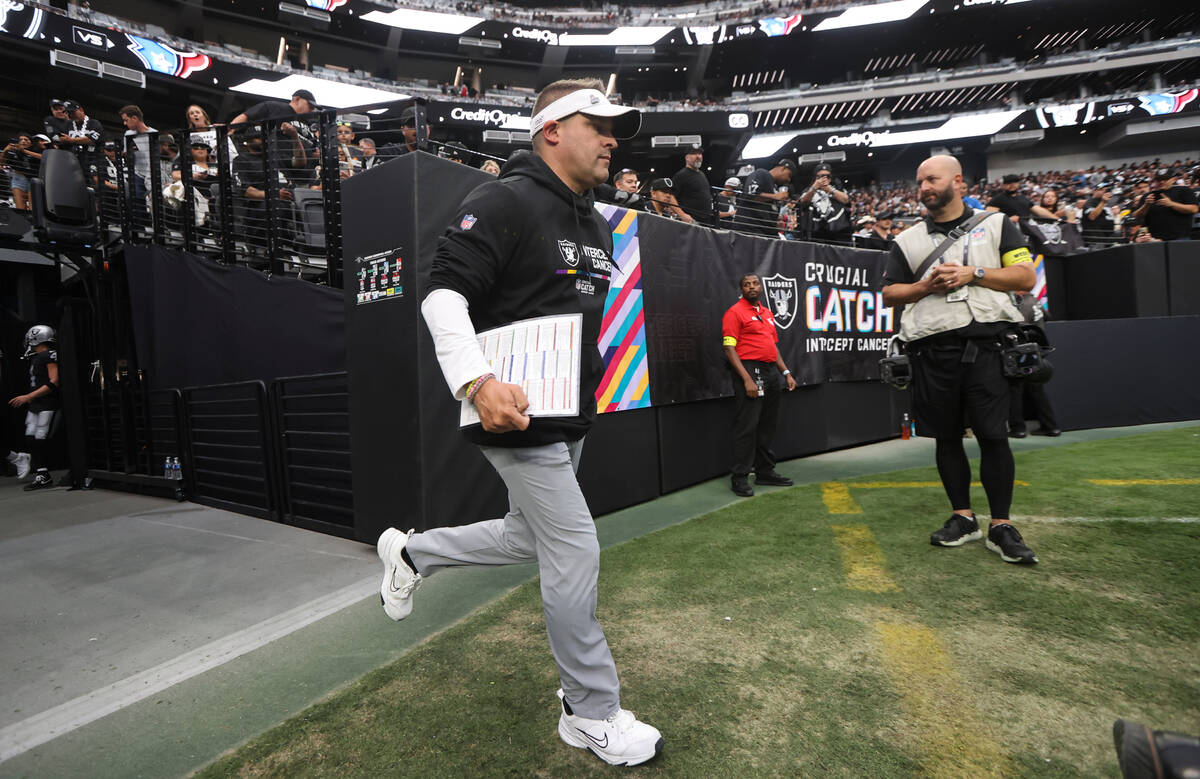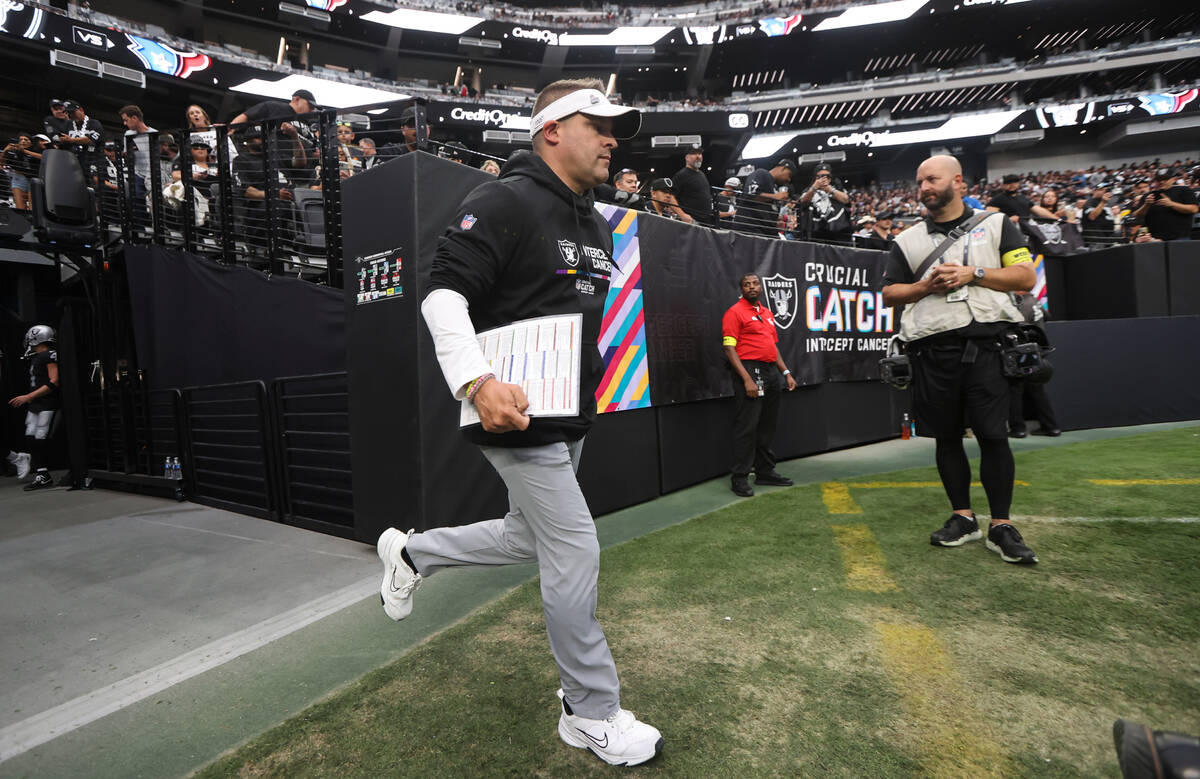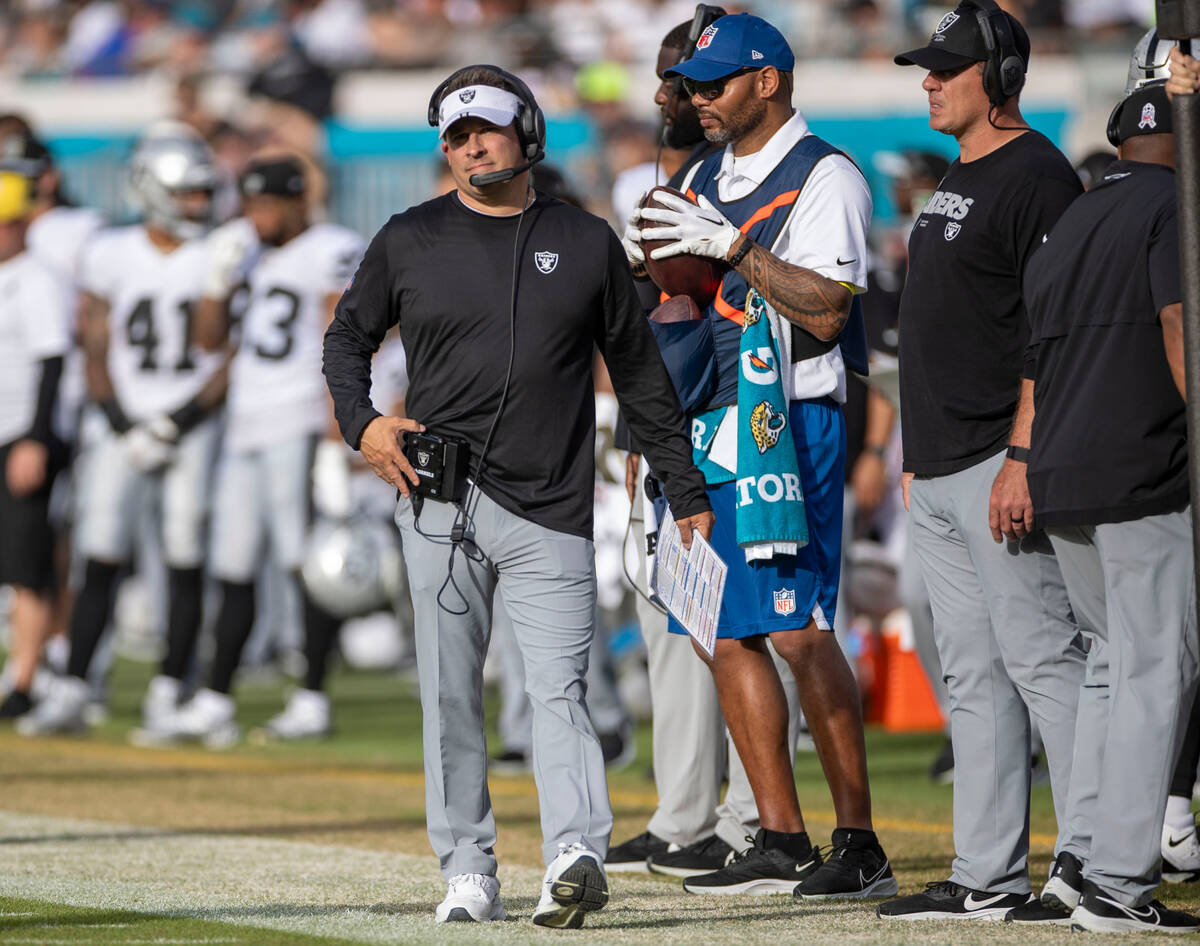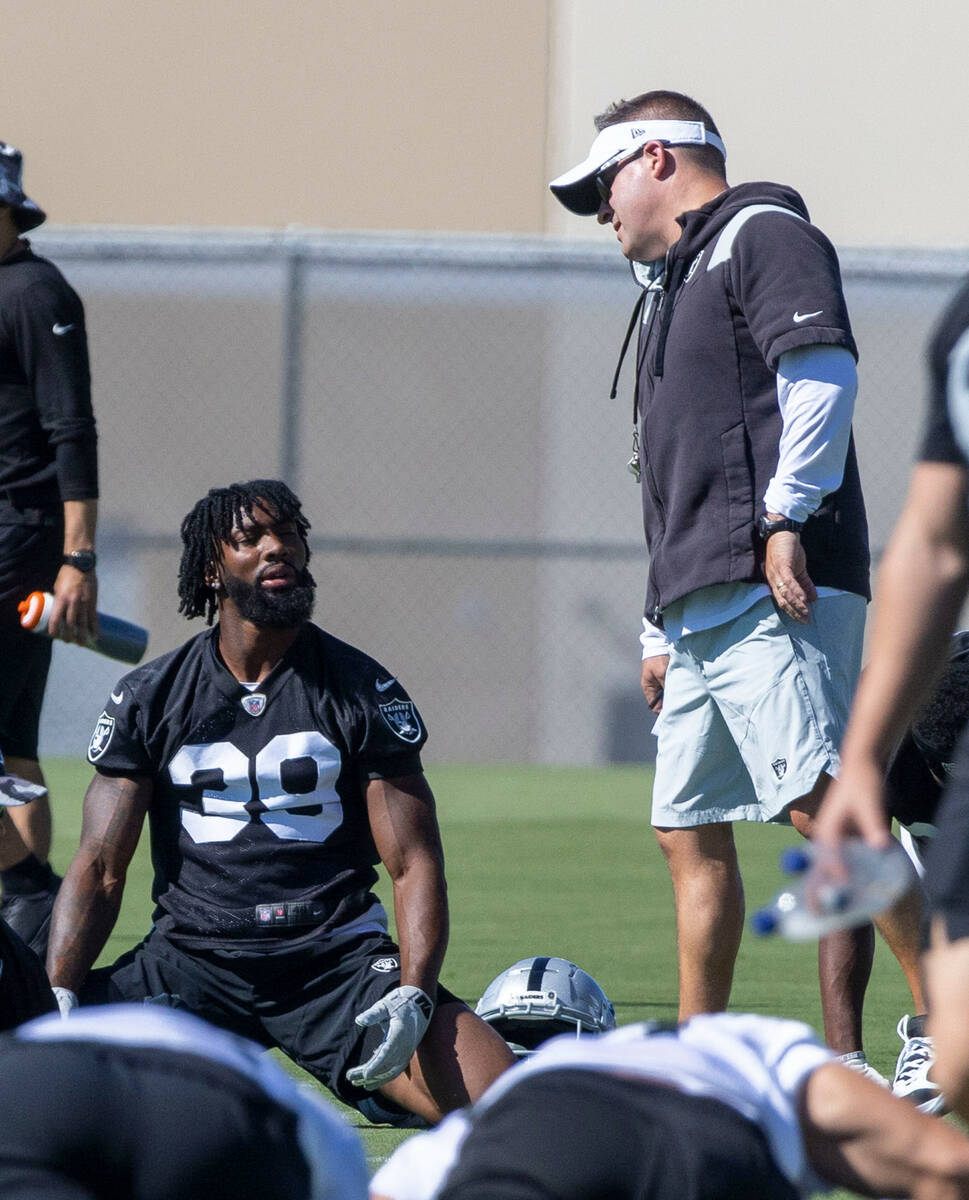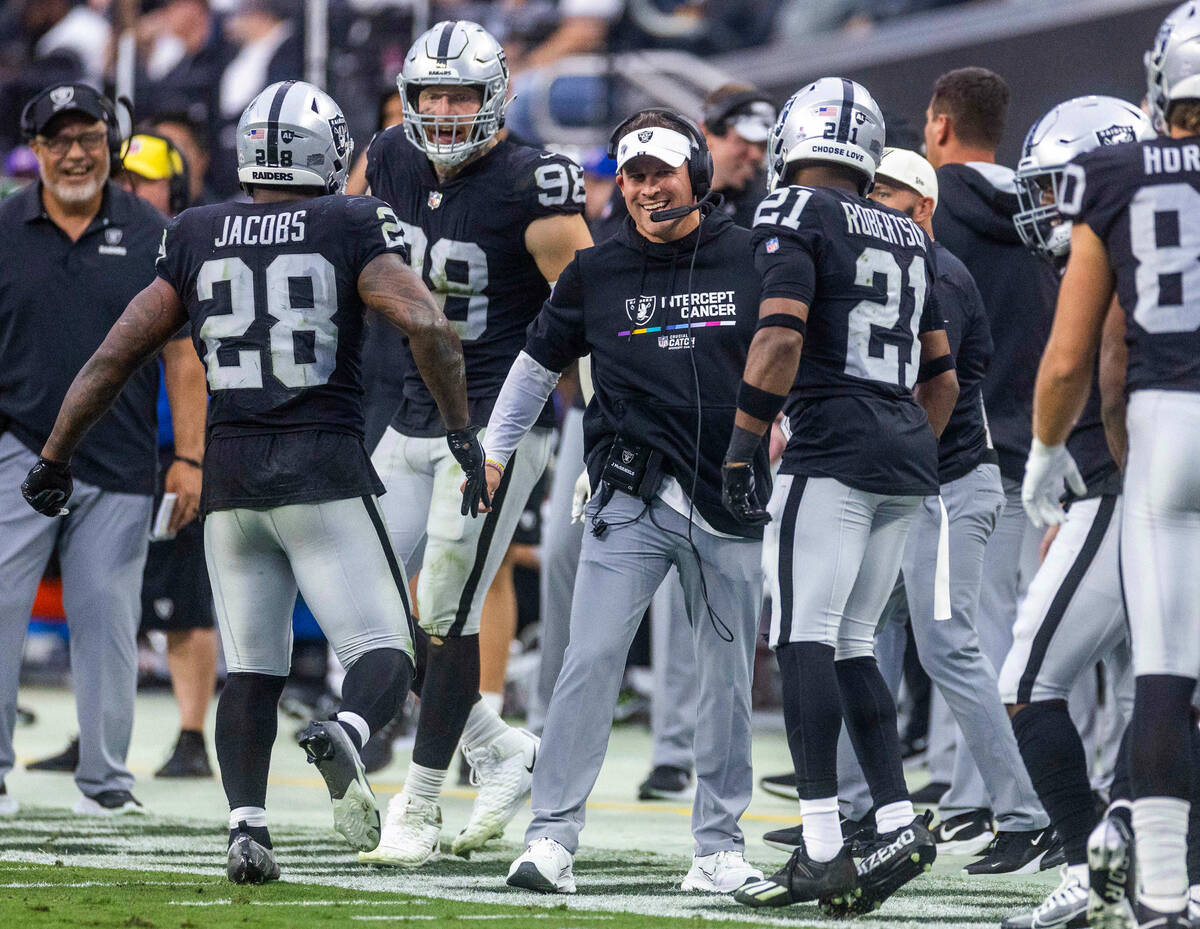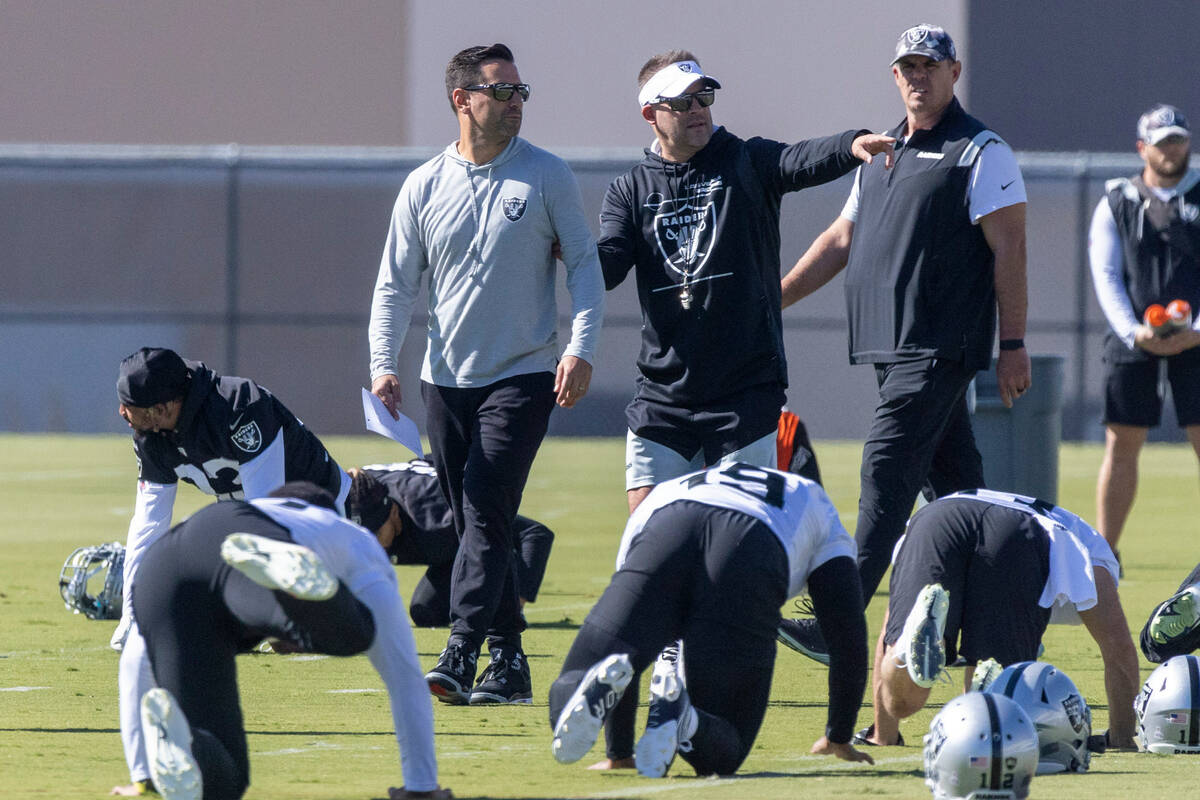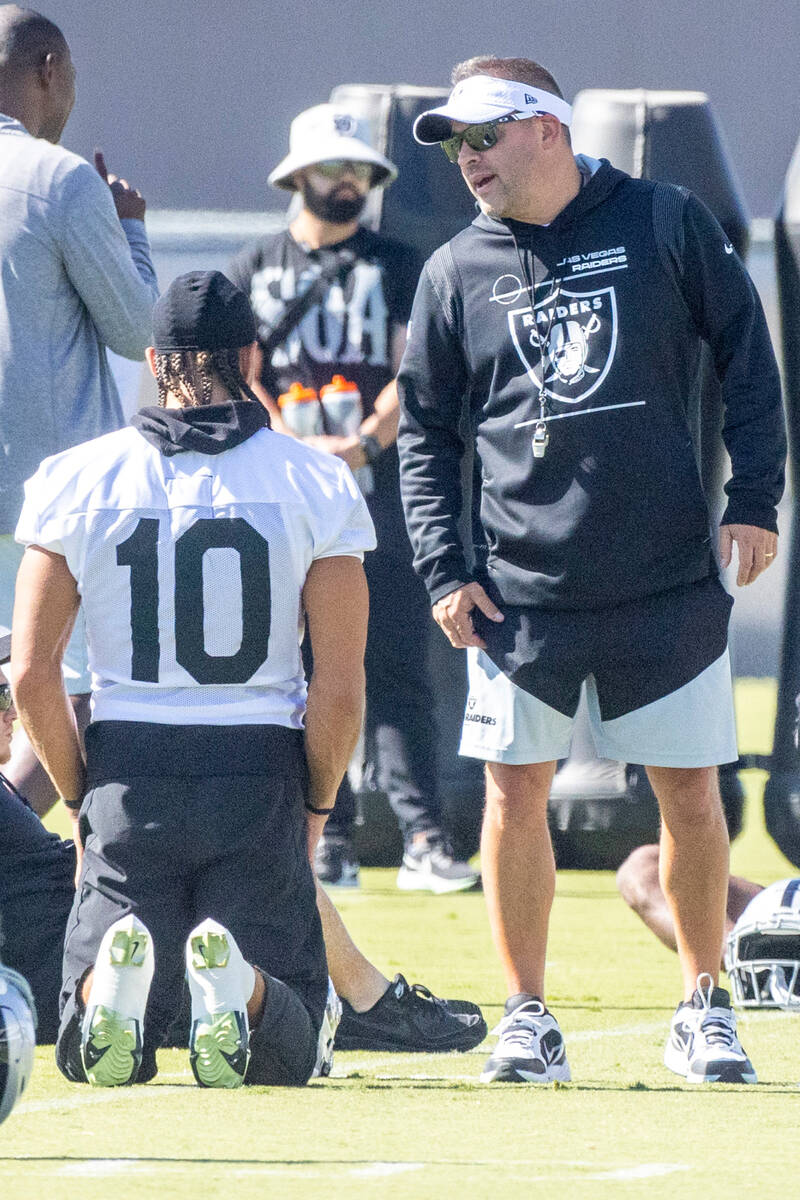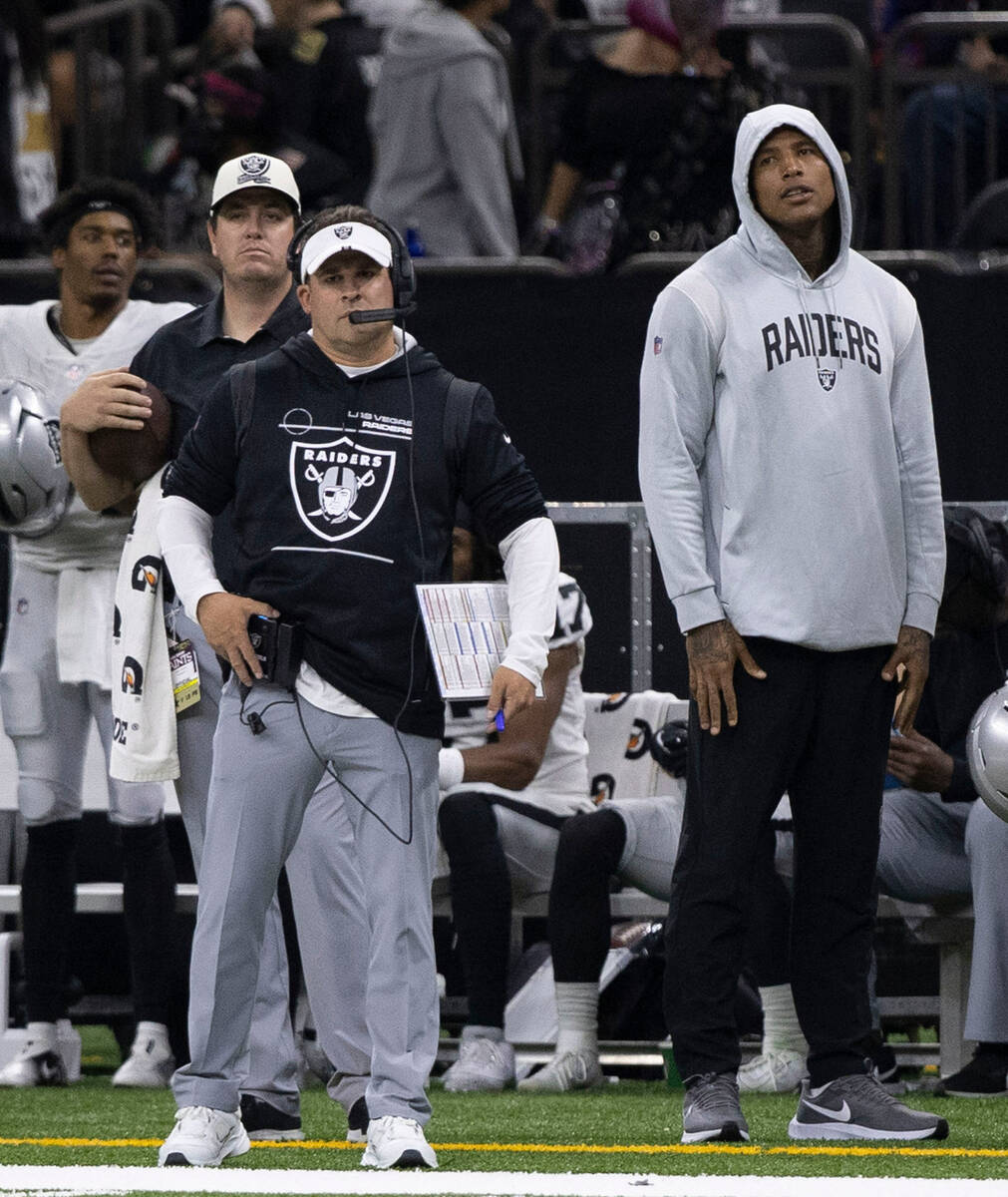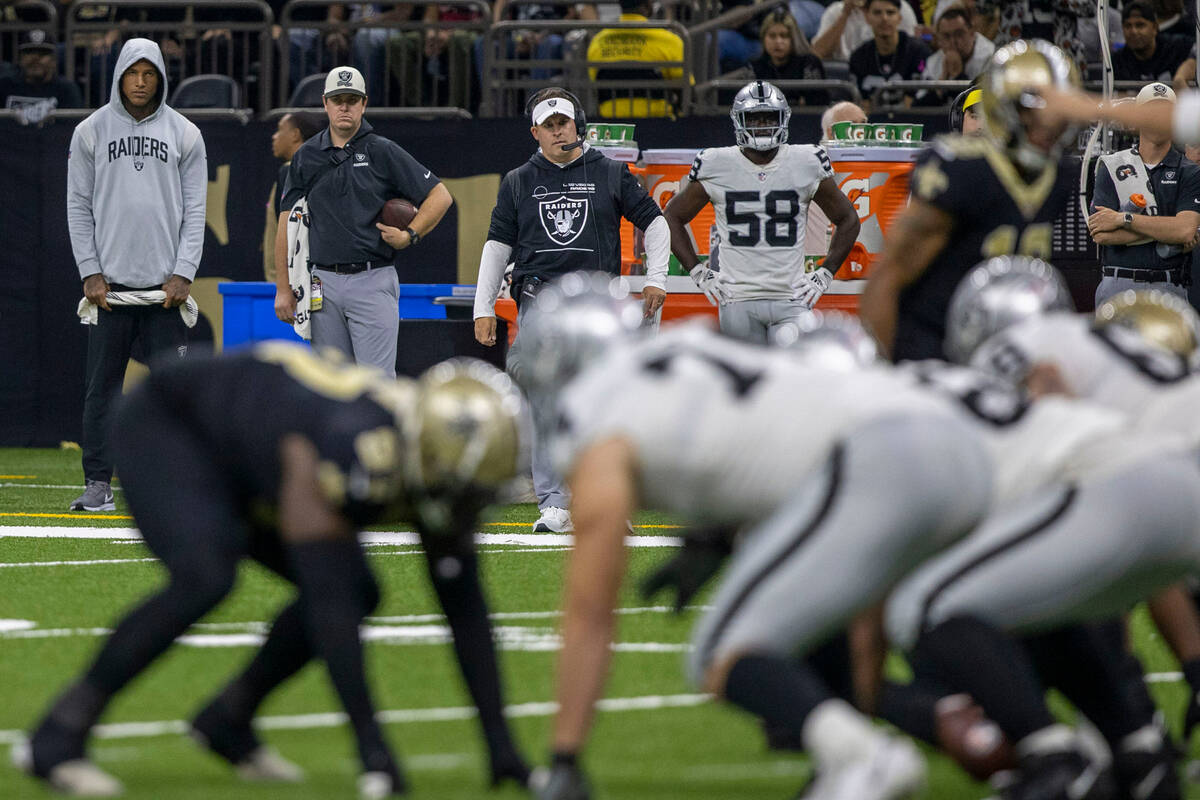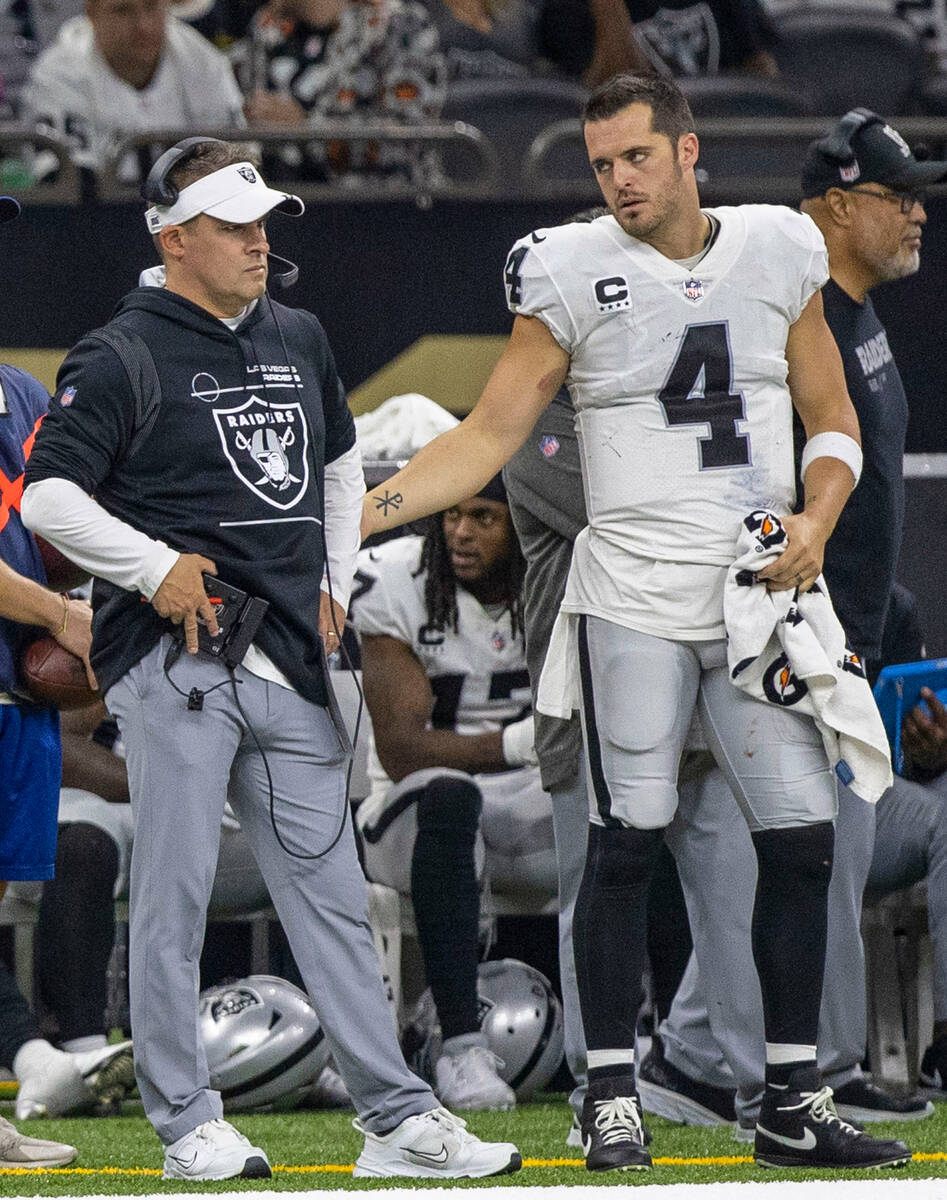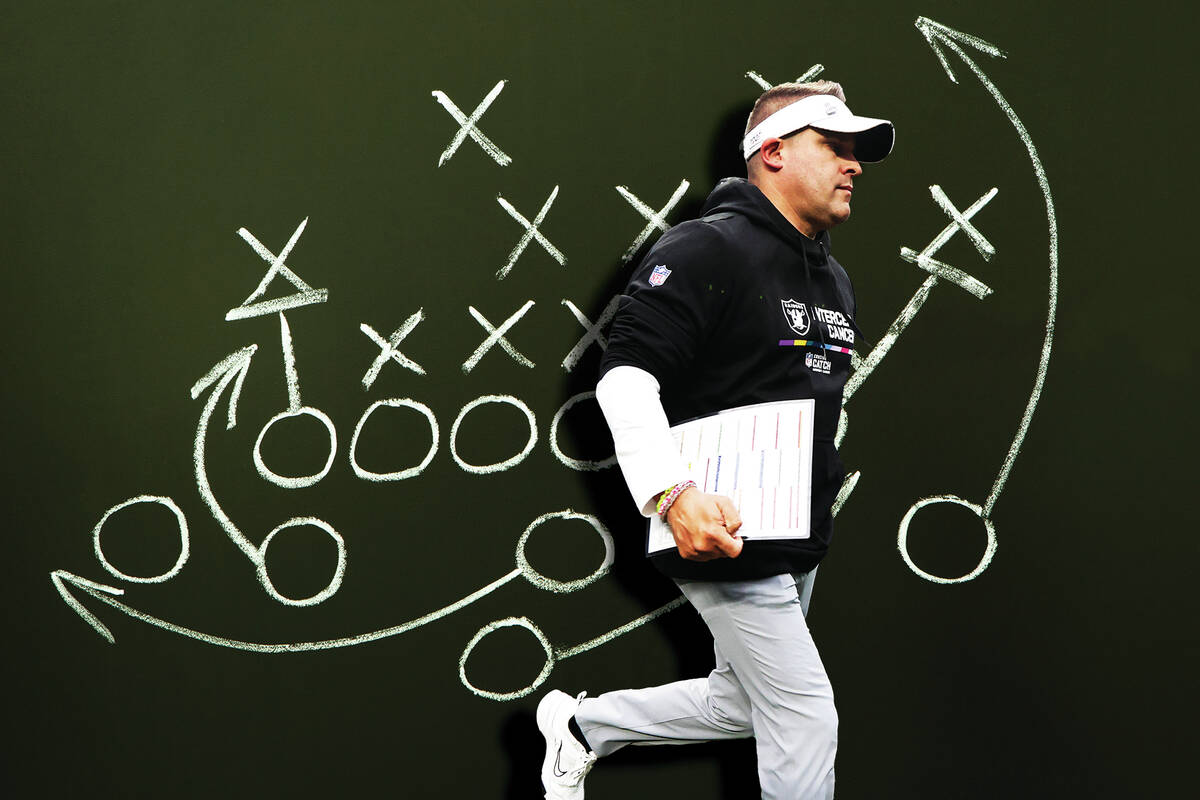Josh McDaniels takes ‘bigger picture view’ as head coach
Coaching football is fun for Josh McDaniels.
The most enjoyable part, really, of a job that entails so much more than running practices on Wednesdays, Thursdays and Fridays. Calling plays on Sundays, Mondays or Thursdays.
“I’ve been able to compartmentalize it a lot better this time around in terms of having a bigger picture view of what’s necessary as we go forward,” said the Raiders’ first-year coach, who had the same position with the Denver Broncos in 2009 and part of 2010.
“I’m a lot different now than I was 12 or 13 years ago in terms of just being able to handle that kind of information and still keep your mind on what you want to do this week.”
McDaniels is one of 10 first-year head coaches this season, nine of whom were coordinators with their previous franchises. He still calls plays and dictates the offensive game plan like he did as the offensive coordinator for the New England Patriots, with whom he won six Super Bowls and orchestrated some of the most explosive offenses in NFL history.
But his focus as a head coach extends beyond his field of expertise and onto the totality of his organization, for which he — and the NFL’s 31 other head coaches — serves as a liaison among the players, assistant coaches, training staff, general manager and owner.
“You certainly think you’re ready. You think you’ve been trained because you’ve won one side of the ball. But there is more to it, being a head coach, obviously,” said former Tampa Bay Buccaneers and Indianapolis Colts head coach Tony Dungy, who led the Colts to a victory in Super Bowl XLI.
“The head coach really sets the focus for the whole team.”
Everything but football
Dungy was a defensive coordinator nine years for the Pittsburgh Steelers and Minnesota Vikings before becoming Tampa Bay’s head coach in 1996. As a coordinator, he wasn’t mandated to meet several days per week with the media, confer with ownership or address the fan base at various events as the enduring face of the franchise.
Those are among the responsibilities unique to the head coach.
Coordinators don’t set the schedule, either, and are instead tasked with running their respective side of the ball, installing game plans during the week and meeting with players in breakout groups after the head coach speaks. Wednesdays are reserved for the base game plan, Thursdays for third-down and short-yardage scenarios and Fridays “you’re buffing it all up,” said former Minnesota Vikings head coach Brad Childress, who was previously an offensive coordinator under Andy Reid for the Philadelphia Eagles.
But “as you move up the ladder from assistant coach to coordinator to head coach, you do less of what you’re the best at,” Childress said, “and more of things that could be coming from all different directions.
“Something in the building. COVID. Whatever. Stuff that blindsides you,” Childress added. “You’re like, ‘OK, I’ve got to deal with this. I’m the head coach. I’ve got to deal with this.’”
With that in mind, Bill Polian, a former general manager for the Buffalo Bills, Carolina Panthers and Indianapolis Colts, said he sought the same traits in prospective head coaching candidates: An ability to organize, a vision and “the third thing is maybe the most important thing. … teaching ability.”
“The great coaches to a man have an ability to simplify what it is they’re teaching and make it interesting and exciting for the players,” said Polian, six times the NFL’s Executive of the Year and a Super Bowl champion with Indianapolis.
Expertise on either side of the ball is a preference, Polian said, but not a prerequisite so long as a prospective head coach “has all the other traits.” Play-calling can be delegated, but individual interaction with each player can’t be. Nor can the general supervision of the other side of the ball or the special teams units, Polian said.
“If you try to delegate (those things), it’s not going to work,” he added.
As a result, head coaches, Polian estimated, require “probably 50 percent” more time preparing for a game than their coordinators — borrowing hours that don’t exist amid an inherently chaotic schedule. Childress said Reid slept in his office in Philadelphia, so he followed suit to save the hour or so he would spend driving to and from the team’s headquarters.
Other administrative responsibilities include planning and coordinating travel, lodging and dining.
“There’s not enough hours in a day. There’s really not,” Childress said. “You can’t make it up. You literally can’t make it up as you go along.”
Back to football
Hiring quality assistant coaches is also of the utmost importance, as is teaching them the respective offensive or defensive scheme.
Prospective coaching candidates tend to have a list of assistant coaches, Dungy said.
“Then all of a sudden I can’t get this guy because he’s under contract. I can’t get this guy because he decided to stay where he was,” he said.
Blending a myriad of perspectives and personalities is also something head coaches tend to consider as they build their staffs, Dungy added.
“Basically, you’re going to make decisions on the trainer, the equipment men, the staff people, administrative assistants,” he said. “All kinds of personnel that you don’t even think about when you’re an assistant.”
Plus, the personnel on the roster.
Head coaches are typically involved in every single roster decision, leading to detailed dialogue with, say, the general manager and the owner. Decisions must be made with the short- and long-term outlooks in mind, necessitating the vision and organization that Polian values.
“It’s challenging,” said McDaniels, 13-23 as a head coach. “I think the help and the resources that we have here are really, really important. I obviously can’t focus all of my time and energy on that. So there’s a lot of other people that are. And I think they’re doing a tremendous job of keeping the big picture the big picture.”
And then there’s coaching football every week. As a first-year head coach. For another franchise in another market.
“It was probably the end of my second year before I felt like I really got it down,” Dungy said. “At the end of the first year, you’ve got a good idea, you’ve been through it once. But just scheduling things and laying things out and setting things up, hiring a staff and all those things that go with it — the offseason meetings. All of it, it takes a little getting used to.”
Contact Sam Gordon at sgordon@reviewjournal.com. Follow @BySamGordon on Twitter.



